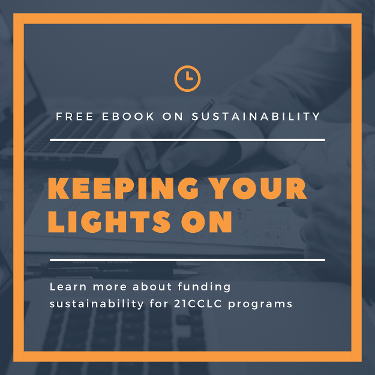When a grantee is considering how to use its ESSA Title IV, Part B, 21st Century Community Learning Centers (21CCLC) funding, the first thing that usually comes to mind is after-school programs. While this is probably the most common use of these funds, there are three other ways (or ‘times’) that 21CCLC funds may be used. These funds are not limited to after-school. They may be used for any outside-of-the-regular-school-day programs, which include using 21CCLC funds for:
- Before-school programs
- Weekend and non-school-day programs (during the school year)
- Summer programs
3 Ways to Use 21CCLC Grants Beyond Funding for After-school Programs
The U.S. Department of Education’s guidance for 21CCLC programs includes question G-1, which is a list of activities for which a grantee may use their 21CCLC program funds. These activities may be funded at any outside-of-the-regular-school-day time. However, some activities may be a better fit for certain times over others.
Certain activities are good candidates for any outside-of-the-regular-school-day program. A good example is tutoring and academic enrichment programs, such as math, English/language arts, and science activities. However, some activities may be better suited for particular outside-of-the-regular-school-day time.
1) Before-School Programs
Some examples of programs that may be a good fit for before-school programs include:
- Arts and music education activities
- Activities for ELs that emphasize language skills and academic achievement
- Expanded library hours
- Recreational activities, physical fitness, and wellness
- Assistance for students that have been truant, suspended, or expelled
2) Weekend/Non-School-Day Programs
Many of the activities listed for before-school programs also fit well with weekend/non-school-day programs. Some additional activities that may fit well for weekend/non-school-day programs include:
- Youth development activities, such as mentoring programs, internships, or apprenticeships
- Cultural programs
- Community service activities
3) Summer Programs
There are many other activities that can be supported through 21CCLC funding beyond after-school programs. However, some programs that required a more significant time commitment may not fit well in a before-school or weekend program. Some specific additional examples of activities that may be funded with 21CCLC that you may want to consider for summer programs include:
- Entrepreneurial education programs
- Telecommunications and technology education programs
- Nutrition and health education programs
- Drug and violence prevention, counseling, and character education programs
- Family literacy, financial literacy, and environmental literacy programs
- Career and technical education programs
There are many other activities that could be included. For a list of allowable 21CCLC activities, be sure to check guidance from the Department of Education located here. If in doubt, ask your State’s 21CCLC program manager for ideas and suggestions.
TransAct's AfterSchool21 is the online software that after-school programs across the country use to manage their 21APR data collection. See how we can help your program today by requesting a demo.

